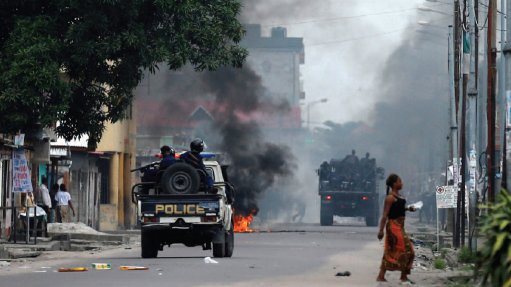
Security forces in the Democratic Republic of Congo killed at least 62 people and arrested hundreds of others during protests across the country between December 19 and 22, 2016, after President Joseph Kabila refused to step down at the end of his constitutionally mandated two-term limit.
As people took to the streets – blowing whistles, banging on pots and pans, and shouting that Kabila’s time in office was up – government security forces fired live ammunition and teargas at the protesters. Some witnesses heard soldiers yell at them: “We are here to exterminate you all!” Activists and opposition leaders were thrown in jail in the days leading up to and during the protests, while security forces wounded, threatened, detained, or denied access to international and Congolese journalists covering the protests. In the aftermath of the demonstrations, authorities denied relatives access to hospitals and morgues, making it impossible for many families to bury their loved ones.
In the lead-up to the December protests, and as domestic and international pressure on Kabila escalated, senior Congolese security force officers had mobilized at least 200 and likely many more former M23 rebel fighters from neighbouring Uganda and Rwanda to protect Kabila and help quash the anti-Kabila protests.
The M23 combatants were recruited between October and early December 2016 from military and refugee camps in Uganda and Rwanda—where many M23 fighters have been based since the armed group’s defeat in eastern Congo in November 2013. Once in Congo, the M23 fighters were deployed to the capital, Kinshasa, and the eastern and southern cities of Goma and Lubumbashi. They were given new uniforms and weapons and integrated into the police, army, and units of the Republican Guard, the presidential security detail. Congolese security force officers—including many from previous Rwandan-backed rebellions who had since integrated into the Congolese army—looked after them, paying them well and providing them with food and accommodation. To protect the president and quash protests, the M23 fighters were given explicit orders to use lethal force, including at “point-blank range” if necessary.
Report by the Human Rights Watch